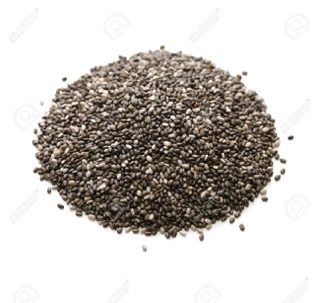

Chia seeds, also known as Salvia hispanica, are tiny seeds that can be safely consumed by dogs. Originating from Central and South America, chia seeds have gained popularity as a nutritious superfood for humans and can offer similar benefits to dogs. They are rich in essential nutrients such as iron, magnesium, phosphorus, potassium, and zinc, making them a valuable addition to your furry friend’s meals. Chia seeds are particularly beneficial for dogs as they provide omega-3 fatty acids for improved skin and coat health, reduced inflammation, and enhanced brain function. They are also high in fiber, which aids in digestion, weight management, and blood sugar regulation. Additionally, chia seeds contain antioxidants, B vitamins, phosphorus, protein, and zinc, all contributing to your dog’s overall well-being.
While chia seeds are generally safe for dogs, there are a few risks to be aware of. Excessive consumption may cause gastrointestinal upset, leading to vomiting and diarrhea. To avoid these issues, it’s essential to introduce chia seeds gradually and in small amounts. Dry chia seeds can also absorb moisture in the digestive tract, potentially forming clumps that can cause intestinal blockages. Soaking the seeds before serving them to your dog can prevent this problem.
While chia seeds are generally safe for dogs, excessive consumption can lead to gastrointestinal upset, including vomiting and diarrhea. To avoid this, it’s important to introduce chia seeds gradually and in small amounts. Additionally, dry chia seeds can absorb moisture in the digestive tract and form clumps, which can cause intestinal blockages. To prevent this, it’s best to soak the seeds before serving them to your dog.
Chia seeds are relatively affordable and easily accessible in many grocery stores, health food stores, and online retailers. However, it’s important to follow the recommended serving size for your dog’s size. Typically, 1-2 teaspoons of chia seeds per day are sufficient. Remember to soak the seeds before serving to ensure they are easier to digest and prevent any potential complications.
If you’re considering alternatives to chia seeds, flaxseeds and hemp seeds can be suitable options for your dog. Both flaxseeds and hemp seeds offer similar nutritional benefits, including omega-3 fatty acids and fiber. However, it’s crucial to grind flaxseeds before feeding them to your dog to enhance their digestibility. Hemp seeds can be served whole or ground, providing a nutritious addition to your dog’s diet.
If you're wondering whether dogs can eat chia seeds, the answer is yes. These tiny seeds are a great addition to your dog's meals, as they are rich in essential nutrients like iron, magnesium, phosphorus, potassium, and zinc. Plus, they are gluten-free, making them a safe option for dogs with gluten allergies or sensitivities.
When feeding chia seeds to your dog, it's important to stick to the recommended serving size. Depending on your dog's size, 1-2 teaspoons of chia seeds per day should be sufficient. You don't need to grind the seeds, but it's important to soak them first to prevent digestive issues. With the right serving size and preparation, chia seeds can be a healthy and nutritious addition to your dog's diet.
You might wonder: Can I add chia seeds directly to my dog's food without soaking them? It's recommended to soak chia seeds before serving them to your dog to prevent digestive issues. Soaking allows the seeds to absorb water and become gel-like, making them easier to digest. By incorporating them into your dog's food, you ensure that they can fully benefit from the nutrients without risking any discomfort.
Another question you may have is: Can all dogs consume chia seeds? While chia seeds are generally safe for most dogs, it's always a good idea to consult with your veterinarian before introducing any new food into your dog's diet. They can provide specific guidance based on your dog's individual needs, health conditions, and any potential interactions with medications or allergies.
Chia seeds are a nutritional powerhouse for dogs. They are an excellent source of omega-3 fatty acids, which can help improve skin and coat health, reduce inflammation, and support brain function. Additionally, chia seeds are high in fiber, which can aid in digestion, promote weight loss, and regulate blood sugar levels. They also contain antioxidants, B vitamins, phosphorus, protein, and zinc, all of which are essential for your dog's overall health and well-being.
I'd love to hear about your pet's experience with chia seeds! Have you ever tried incorporating them into their meals? How did they respond? Remember to start with small amounts and gradually increase as you monitor their tolerance. As always, prioritize your pet's well-being and consult with your veterinarian for personalized advice.
Wishing your furry friend a healthy and happy dining experience!